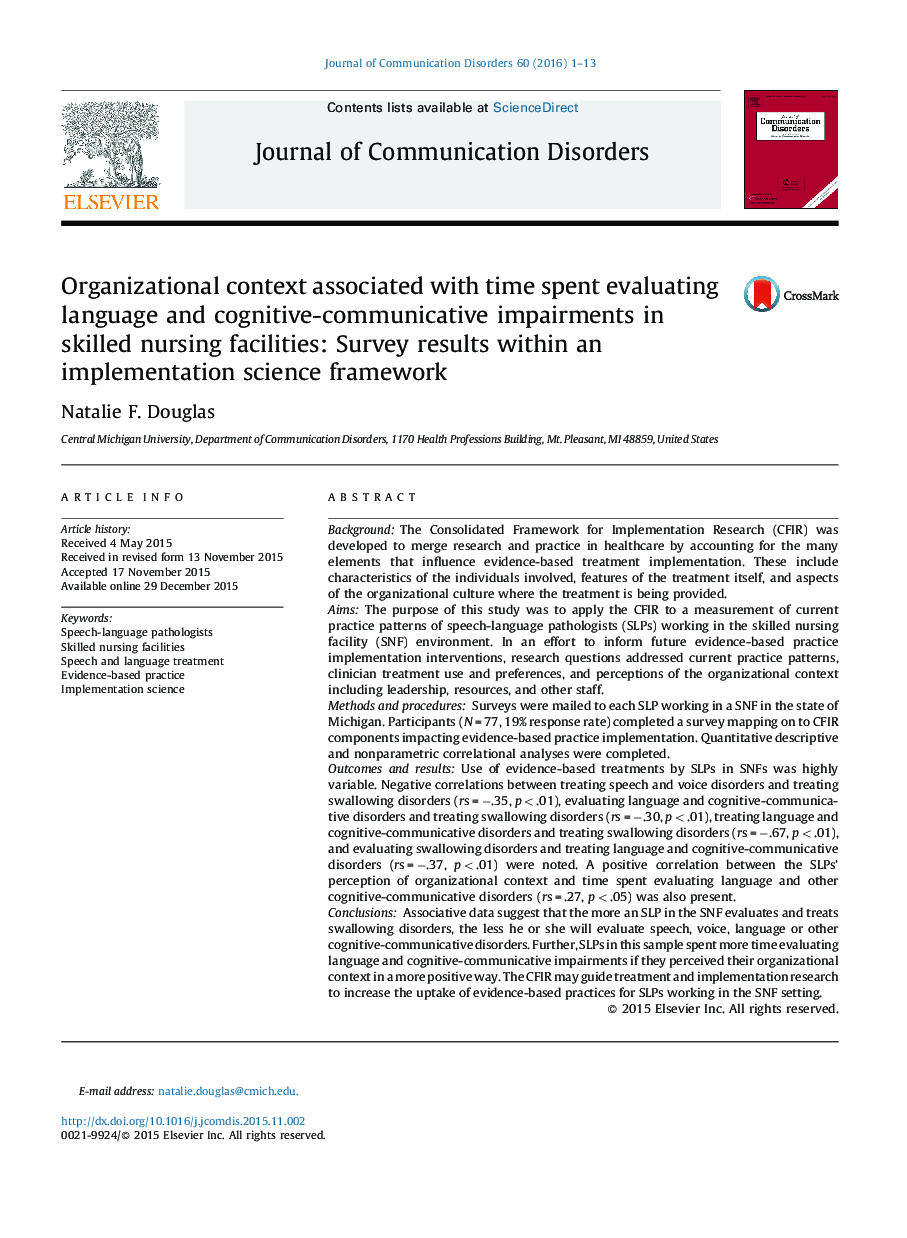| کد مقاله | کد نشریه | سال انتشار | مقاله انگلیسی | نسخه تمام متن |
|---|---|---|---|---|
| 910725 | 1473096 | 2016 | 13 صفحه PDF | دانلود رایگان |
• EBP use for speech and language disorders was variable in a sample of SLPs in SNFs.
• Time on dysphagia was negatively associated with time on communication disorders.
• SLPs’ perception of the organizational context in SNFs impacted clinical practice.
• Practicing SLPs should be considered as stakeholders early in treatment research.
• Implementation of EBPs in SNFs is complex.
BackgroundThe Consolidated Framework for Implementation Research (CFIR) was developed to merge research and practice in healthcare by accounting for the many elements that influence evidence-based treatment implementation. These include characteristics of the individuals involved, features of the treatment itself, and aspects of the organizational culture where the treatment is being provided.AimsThe purpose of this study was to apply the CFIR to a measurement of current practice patterns of speech-language pathologists (SLPs) working in the skilled nursing facility (SNF) environment. In an effort to inform future evidence-based practice implementation interventions, research questions addressed current practice patterns, clinician treatment use and preferences, and perceptions of the organizational context including leadership, resources, and other staff.Methods and proceduresSurveys were mailed to each SLP working in a SNF in the state of Michigan. Participants (N = 77, 19% response rate) completed a survey mapping on to CFIR components impacting evidence-based practice implementation. Quantitative descriptive and nonparametric correlational analyses were completed.Outcomes and resultsUse of evidence-based treatments by SLPs in SNFs was highly variable. Negative correlations between treating speech and voice disorders and treating swallowing disorders (rs = −.35, p < .01), evaluating language and cognitive-communicative disorders and treating swallowing disorders (rs = −.30, p < .01), treating language and cognitive-communicative disorders and treating swallowing disorders (rs = −.67, p < .01), and evaluating swallowing disorders and treating language and cognitive-communicative disorders (rs = −.37, p < .01) were noted. A positive correlation between the SLPs’ perception of organizational context and time spent evaluating language and other cognitive-communicative disorders (rs = .27, p < .05) was also present.ConclusionsAssociative data suggest that the more an SLP in the SNF evaluates and treats swallowing disorders, the less he or she will evaluate speech, voice, language or other cognitive-communicative disorders. Further, SLPs in this sample spent more time evaluating language and cognitive-communicative impairments if they perceived their organizational context in a more positive way. The CFIR may guide treatment and implementation research to increase the uptake of evidence-based practices for SLPs working in the SNF setting.
Journal: Journal of Communication Disorders - Volume 60, March–April 2016, Pages 1–13
